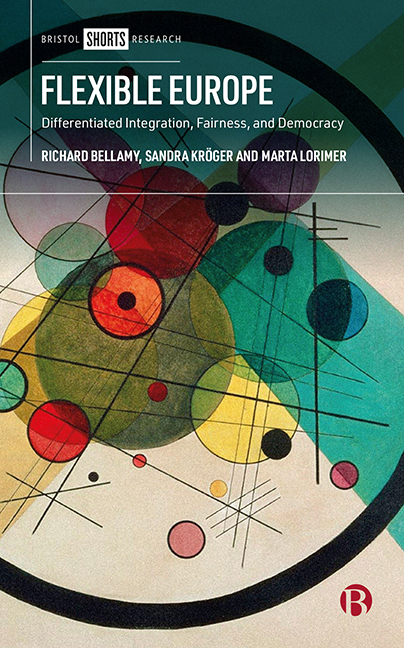Book contents
- Frontmatter
- Contents
- List of Tables
- List of Abbreviations
- About the Authors
- Acknowledgements
- Introduction
- PART I Normative Perspectives on Differentiated Integration
- PART II Political Party Perspectives on Differentiated Integration
- Conclusion
- Appendix A List of Respondents
- Appendix B Interview Questions
- Appendix C Survey Questions
- Notes
- References
- Index
Conclusion
Published online by Cambridge University Press: 15 September 2022
- Frontmatter
- Contents
- List of Tables
- List of Abbreviations
- About the Authors
- Acknowledgements
- Introduction
- PART I Normative Perspectives on Differentiated Integration
- PART II Political Party Perspectives on Differentiated Integration
- Conclusion
- Appendix A List of Respondents
- Appendix B Interview Questions
- Appendix C Survey Questions
- Notes
- References
- Index
Summary
We have argued that differentiated integration provides a mechanism for combining the demands for European integration with the recognition of national diversity. However, to do so we contend that DI must be understood not simply as strategically beneficial or expedient but also as ethically desirable and constrained. DI would prove objectionable and divisive, liable to undermine rather than to facilitate European integration, if it served simply to allow states to cherry-pick those policies they considered to be in their national interest narrowly conceived. As a result, we have sought to identify the conditions under which DI is necessary for and supports a just and democratically legitimate scheme of cooperation, and is recognized as such by political party actors.
To support a fair scheme of cooperation between EU member states, we have argued that DI must fulfil certain normative criteria. Procedurally, it should ensure that all member states and their peoples remain equal and have access to similar basic liberties. Both exclusions and exemptions should be agreed either unanimously by representatives of all member states when negotiating the accession of new members or amending the Treaties, or result from a member state choosing not to participate in an enhanced cooperation supported by at least nine member states. Moreover, participants must consult non-participants on the conduct of the policy area, which should remain subject to common Treaty provisions, and provide those excluded or exempted with the prospect of joining in the future. Substantively, DI must reflect norms of impartiality and reciprocity. On the one hand, it must take into account the different capacities member states may have for producing a given collective good, and the different stakes and interests they may have in it. On the other hand, no member state should be excluded from a policy if they would become worse off than they currently are as a result, nor should a state be allowed to opt out of a policy or be exempted from meeting certain standards if that would render the participating or complying states worse off than they are. Moreover, the conditions governing both exclusions and optouts/exemptions should ensure public goods, such as a clean environment, and common resource pools, such as fish stocks, are not eroded as a result.
- Type
- Chapter
- Information
- Flexible EuropeDifferentiated Integration, Fairness, and Democracy, pp. 154 - 159Publisher: Bristol University PressPrint publication year: 2022



